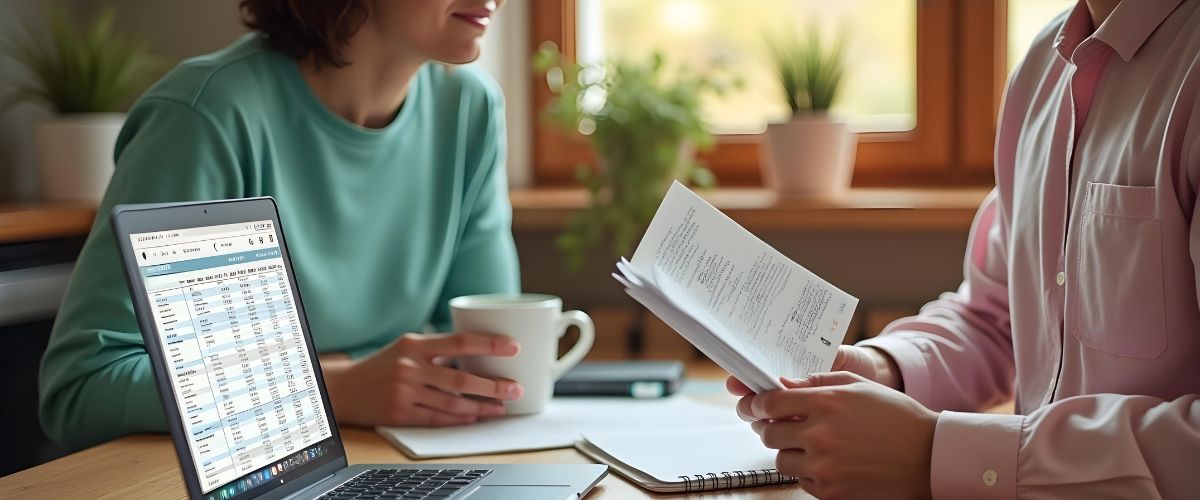
Repayments on a £150k mortgage
Everyone’s circumstances are unique, as are their borrowing requirements. As a result, mortgages come in a variety of forms and sizes.
Your guide to what you can afford.
Do you qualify? Only takes a few minutes, NO CREDIT CHECKS!
What are the monthly repayments on a £150k mortgage?
Your repayments on a £150,000 mortgage will depend on a variety of factors, including:
If you have a repayment mortgage, the length of your term will determine how much you pay each month. The longer the period, the cheaper the monthly cost, but you will most likely pay more interest. If the term is shorter, your monthly repayments will be higher, but you will typically pay less interest.
Repayment mortgages are the most common types of mortgage products. Each month you will repay part of the capital (the amount you borrowed), and part of the interest.
This often results in higher monthly repayments, especially when compared to an interest-only mortgage. This is because interest-only mortgages allow you to only contribute towards the interest on the loan, rather than the loan amount as well. This means that your monthly payments will be lower. At the end of the mortgage you will then be required to pay back the full loan amount.
Keep in mind that if you want an interest-only product, a lender will require you to have a ‘repayment vehicle’ in place. This is some form of investment, for example investment bonds, that will be used to pay off capital at the end of the term.
Interest is essentially the cost lenders charge you for borrowing money from them. The rate of interest you are charged will influence your monthly payment. The higher the interest rate, the more you will repay, and vice versa.
Interest rates can be influenced by several things. Below we have highlighted how different factors can change what rate you are offered:
- Deposit size & loan-to-value: the amount of deposit you are able to provide when getting a mortgage can influence the interest rate you are offered. The higher your deposit, the lower the loan-to-value, meaning a lender won’t have to lend as much money in relation to your property. Therefore, they are taking on less risk, so they may be willing to offer a lower interest rate.
- Credit score: your credit history plays a large part in any lender’s affordability assessment, as it gives them an idea of what you are like as a borrower. If you credit score is less than perfect, it can affect the interest rate you are offered. This is because you will be seen as a risky borrower, meaning the lender will need to cover their risk exposure by increasing your interest rate.
- Type of mortgage product: the type of mortgage you choose can also impact the interest rate. For example, fixed-rate mortgages often have higher initial rates but offer stability as they stay the same through the term. Variable rate mortgages may have lower initial rates, but are subject to fluctuations based on market conditions.
If you want to find out what interest rate you may be charged based on your circumstances, feel free to reach out today!
How to calculate the monthly repayments on a £150k mortgage
If you’re thinking about getting a mortgage of £150,000, you’ll want to know how much the monthly repayment would be. You may do a manual calculation for this, but the method for calculating the payment for a capital and interest mortgage is very hard, so we propose that you use a repayments calculator instead.
Of course, you may still use a mortgage repayments calculator to figure out an interest-only mortgage, but it’s far easier to figure it out yourself. Use this simple calculation:
Your monthly repayment = the amount of the loan x interest rate, divided by 12 (the months of the year)
For example:
£150,000 x 3% = £4,500
£4,500 divided by 12 = £375 per month
Many calculators may be used to provide this information, which includes some very basic facts. These are typically:
- The amount of money you wish to borrow.
- Payback method, for example, repayment or interest-only.
- The duration (this will be required in years and/or months).
- The interest rate that you wish to use. We propose that you calculate this not only at the current rate but also at a higher rate, to determine your affordability in the future if interest rates rise.
If you don’t have time to use a calculator, we’ve included a rough estimate of what a £150,000 repayment mortgage may cost each month across various terms and interest rates below.
| Term | 2.5% rate | 3.5% rate | 4.5% rate | 5.5% rate |
| 10 years | £1,414 | £1,483 | £1,555 | £1,628 |
| 15 years | £1,000 | £1,072 | £1,147 | £1,226 |
| 20 years | £795 | £870 | £949 | £1,032 |
| 25 years | £673 | £751 | £834 | £921 |
| 30 years | £593 | £593 | £760 | £852 |
| 35 years | £536 | £620 | £710 | £806 |
How much do you need to earn to borrow £150,000?
When determining how much you can borrow, a lender will assess a range of factors including your credit score, deposit size, employment, and expenses. However, the most influential factor to help determine your borrowing will be your income.
will use a multiplier to help them work out what you could borrow. Typically, this multiplier will be 4 to 5 times your yearly income.
So, for example, if you were able to borrow 4 times your income, you would need to earn £37,500 annually. This is because £37,500 multiplied by 4 equals £150,000.
And if you earned £30,000 yearly you would need to unlock a multiplier of 5 in order to borrow £150,000.
The multiplier a lender uses will be influenced by the factors listed above and more. If you are seen as a favourable borrower due to things like excellent credit and an above average deposit, you may be able to unlock a higher multiplier, allowing you to borrow more.
In certain circumstances you can borrow up to 6 or 7 times your yearly income. However, this is usually only possible for individuals who are classed as high earners with stable and consistent work, like doctors or lawyers for example.
Are there any other considerations?
Think about how much money you need to borrow. Is £150,000 required, or is it possible to borrow less? The less money you borrow, including capital and interest, the less you will have to pay.
On the other hand, be sure you borrow enough. Don’t leave yourself short on funds for any ambitions you may have and then find yourself either unable to complete what you began, or having to borrow additional money at a potentially higher interest rate later on. Make certain that everything you choose is within your budget.
Borrowing less reduces your loan-to-value, which is the ratio of how big your loan is in comparison to the property’s worth or purchase price. You may discover that this results in a lower interest rate.
For example, a mortgage of £150,000 on a house worth £195,000 would be a 77% LTV.
However, lowering the loan to £146,250 would put you at 75% LTV, and you’d likely be charged a higher interest rate.
What can a mortgage broker do for you?
A mortgage broker can help you navigate the mortgage application process and ensure you only pay what is required. Brokers will utilise their knowledge and skills to ensure that your mortgage demands are met not just at the onset, but also throughout the life of the loan.
If you are a first-time buyer you will not have gained any expertise from arranging a mortgage in the past, and even individuals who have owned a house before are unlikely to have put up too many mortgages.
A mortgage broker works with mortgages for a livelihood and may give advice and ideas on how to best arrange a £150,000 mortgage. They are likely to be able to discuss topics with you that you have not even considered.
If you want to discuss your mortgage needs, why not reach out and we can organise a free initial consultation.
Let's talk
Our team will aim to get back to you within 24 hours.
0330 0945876 local rate.
[email protected]
"*" indicates required fields


